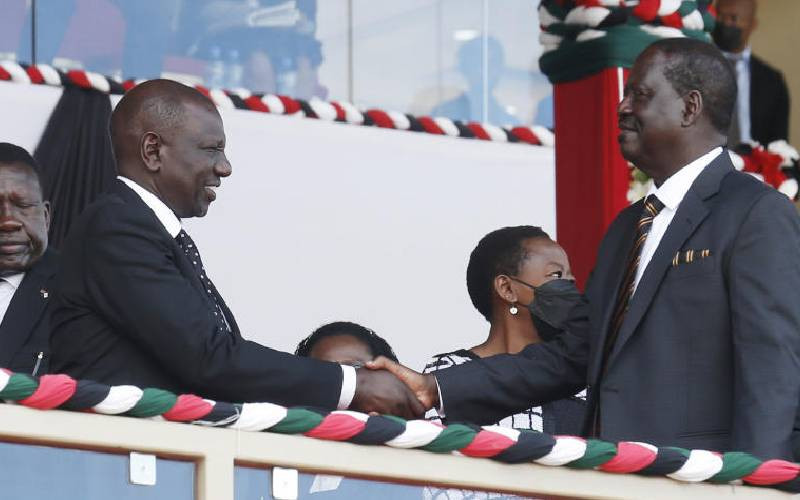×
The Standard e-Paper
Fearless, Trusted News

Factoring in all types of voters, including the undecided ones, Raila Odinga would win the presidential election if the polls were held today, TIFA poll suggests.
However, his 49 per cent popularity rating would make it impossible for him to secure a Round One victory that requires the winner to garner at least 50 per cent of the votes plus an additional extra vote.